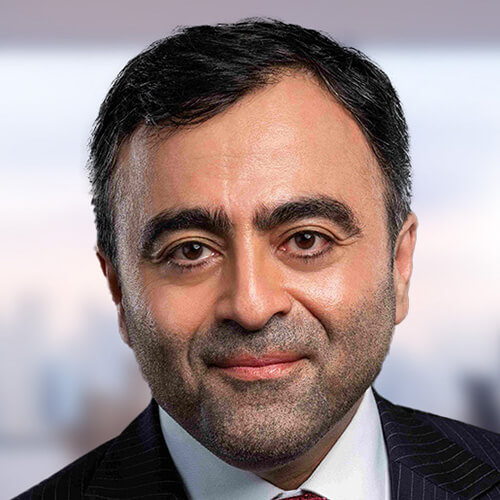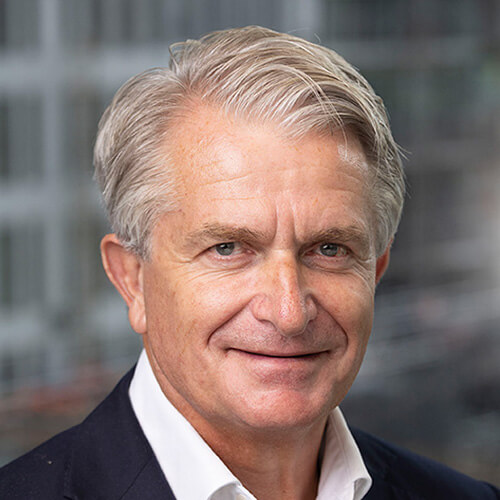Dubai emerges as a key player in the growing APAC (re)insurance market
November 6 2024 by Heather Ng and Kristina Shperlik
As more (re)insurers and brokers expand their presence in Dubai, the emirate is likely to attract even more global reinsurers due to its flexible regulatory environment, strategic geographic advantage, cheaper talent pool and business-friendly tax environment, industry experts told InsuranceAsia News (IAN).
In July, HDI Global received a regulatory license from the Dubai Financial Services Authority (DFSA) to open an office in the Dubai International Financial Centre (DIFC). The local branch is planning to begin operations in the third quarter of 2024.
Willem van Wyk, the office’s head, emphasised the significance of this move as it is well-aligned with the carrier’s expansion strategy.
“The long-term strategy for a global player like HDI Global is to also be a significant reinsurer in the Middle East within our chosen market segment,” van Wyk said.
This expansion reflects a broader trend, with the market seeing other (re)insurers and brokers entering the Dubai market.
Last month, Mahindra Insurance Brokers received a regulatory license in Dubai to tap MENA reinsurance growth.
Markel’s APAC managing director Christian Stobbs, speaking to InsuranceAsia News this week, also mentioned Dubai as one of the offices where regional economic strength provided favourable tailwinds to the whole book of business.
Van Wyk noted the increasing number of broking and underwriting applications the DIFC has received, suggesting a shift towards less reliance on offshore markets for insurance placements.

“Dubai’s – and DIFC’s – strategic location provides insurance and (re)insurance companies with access to several markets. With its proximity to the surrounding GCC region, Africa, Central and South Asia, and Europe, DIFC serves as a gateway for companies looking to expand their operations beyond the region.”
Salmaan Jaffery, DIFC
“I believe the region will become less reliant on offshore markets, and, except for mega risks, insurance placements will be mostly done within Middle Eastern markets,” he explained.
Besides that, other attractions to the DIFC are the location which is right in the middle of Europe and Asia, strong economic growth, high rate of investment as the region transforms & modernises, as well as low tax environment and high living standards in the region, van Wyk said.
Van Wyk said that he expects to see more (re)insurers and brokers entering the Dubai market, continuing more brokers and capacity entering the market over the last few years.
While Singapore is viewed as a stable and innovative financial hub, characterised by its prudent regulatory framework under the Monetary Authority of Singapore (MAS), Dubai is emerging as a more agile alternative.
Rohit Boda, managing director at reinsurance broker J.B. Boda, describes Singapore as “prudent yet pragmatic,” with an emphasis on innovation and a mature infrastructure that fosters growth in the insurance sector.
His views are echoed by van Wyk who said that one of Dubai’s main attractive points is its flexibility.
“There are different categories of insurance licenses that open up more possibilities for reinsurance services in the region,” he said.

“I believe the region will become less reliant on offshore markets, and, except for mega risks, insurance placements will be mostly done within Middle Eastern markets.”
Willem van Wyk, HDI Global
On the other hand, van Wyk describes Dubai as an “agile environment for reinsurance companies to enter the market” as there are different categories of insurance licenses opens up more possibilities for reinsurance services in the region.
This adaptability is appealing to reinsurers looking to enter or expand within the market, positioning Dubai as a favourable alternative.
Besides that, Dubai’s geographic positioning at the crossroads of Europe, Asia, and Africa enhances its appeal as a gateway to high-growth markets.
“Dubai’s geographic advantage is undeniable,” Boda stated, recognising the emirate’s potential to facilitate access to the expanding markets of the Middle East and South Asia.
“Dubai’s – and DIFC’s – strategic location provides insurance and (re)insurance companies with access to several markets. With its proximity to the surrounding GCC region, Africa, Central and South Asia, and Europe, DIFC serves as a gateway for companies looking to expand their operations beyond the region,” said Salmaan Jaffery, chief business development officer at DIFC Authority.
Besides that, growing infrastructure demands in the UAE and surrounding GCC countries, and government mandates in certain markets, like in the motor and health insurance industries are further fuelling this demand, Jaffery said.

“Dubai’s business culture, coupled with tax incentives and streamlined regulations, allows (re)insurers to quickly scale up in the region and across geographies, making it a top destination for businesses targeting these untapped markets.”
Rohit Boda, J.B. Boda
In contrast, Singapore, while well-connected to South-East Asia, faces limitations in accessing MENA markets. This geographical disparity could hinder its attractiveness to reinsurers focused on these emerging regions.
Both Dubai and Singapore are investing heavily in infrastructure to support their evolving insurance markets, but the DIFC is specifically well-known for its business-friendly tax environment and strategic initiatives aimed at attracting multinational insurers.
“Dubai’s business culture, coupled with tax incentives and streamlined regulations, allows (re)insurers to quickly scale up in the region and across geographies, making it a top destination for businesses targeting these untapped markets,” Boda said.
The region is experiencing significant growth in sectors such as construction, energy, and healthcare, all of which increase demand for specialised insurance products.
Max Robbie, senior executive director at Markel Dubai, emphasised the DIFC’s regulatory framework as a major draw, noting it is modelled after the UK’s Financial Services Authority.
“This robust structure is particularly appealing to multinational insurers operating in the region,” Robbie explained, highlighting how it enables firms to establish regional headquarters without facing overly complex regulations.

“This principles-based regulatory model fosters an environment where insurers feel empowered rather than obstructed, promoting transparency and enabling growth and scalability.¨
Max Robbie, Markel
Cross-jurisdictional standardisation, facilitating smoother entry for UK-based firms, particularly insurtechs while also supporting traditional insurance operations, is another regulatory benefit of the city.
“This “principles-based” regulatory model fosters an environment where insurers feel empowered rather than obstructed, promoting transparency and enabling growth and scalability,¨ Robbie said.
MGAs, with their ability to operate more nimbly and scale rapidly, could find Dubai particularly attractive, especially given the “principles-based” regulatory approach that has been a hallmark of the DIFC. This regulatory environment provides the flexibility and agility that many companies, particularly smaller, specialised insurers, are seeking in order to grow and innovate in ways that might be more constrained in other financial hubs. Dubai’s unique positioning allows these firms to scale efficiently while maintaining the adaptability needed to navigate the region’s evolving market conditions.
In terms of talent, Singapore currently boasts a well-established workforce with expertise in (re)insurance, driven by the presence of global insurers and top educational institutions.
However, the talent competition is fierce, and an ageing workforce poses challenges for the sector.
Dubai, while still developing its local talent base, offers lower costs for skilled professionals and is actively implementing government initiatives aimed at upskilling its workforce.
“While Dubai is still developing its local talent base, its relatively lower costs for skilled professionals can also be a draw for companies looking to scale operations,” Boda noted.
As the demand for insurance products grows in the MENA region, driven by economic expansion and evolving risk landscapes, Dubai is poised to play a crucial role. Boda said that “the economies of the Gulf Cooperation Council (GCC) countries are growing rapidly,” creating a fertile environment for reinsurers to thrive.
-
‘Positive and progressing well’: P&I renewals slow and steady amid moderate increases, member loyalty
- February 12
Skuld, Shipowners' Club, Steamship Mutual, Britannia P&I Club and West P&I speak to InsuranceAsia News ahead of the 2026 renewals.
-
With a handsome track record, what’s next for the cat bond market in 2026?
- February 10
Aon Securities' CEO Richard Pennay tells InsuranceAsia News he expects a strong issuance year after a record-breaking 2025.
-
Hannover Re grows APAC premiums 2% at 1.1 despite broadening market terms, pockets of weak pricing
- February 6
While 1.4 renewals will likely similar momentum, market will be mindful of last year's acceleration in rate reduction, executive board member for P&C Sven Althoff tells InsuranceAsia News.
-
Asset-intensive reinsurance to remain robust, continue APAC growth ‘by all measures’ in 2026
- February 4
Japan is set to remain 'largest and most active market in the region', with Hong Kong, Singapore, Taiwan and South Korea all seen as having potential for growth, industry insiders tell InsuranceAsia News.
-
QBE | Elevating customer experience, humanising claims: QBE Asia’s ‘Solutions in a Box’
Vastly improving turnaround times and personalising service delivery, QBE Asia’s award-winning, end-to-end bundled claims solutions is a game-changer for the insurance industry.
-
Beazley | What does cyber protection look like from day 1 to day 600 and beyond?
Cybersecurity is no longer just an IT concern, but a governance issue that belongs on the boardroom agenda.
-
Sedgwick | Preparing for the next storm
Insurance industry needs to recalibrate, invest in innovation and strengthen systems, talent and data practices.
-
Peak Re | From climate modelling to market opportunity: Forging a new clarity on Southeast Asia’s climate risk
Southeast Asia's protection gap: a crisis of clarity, not just capital

